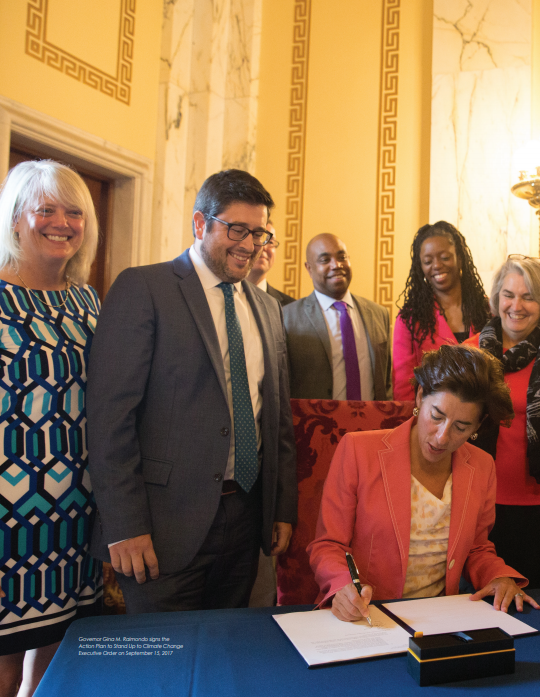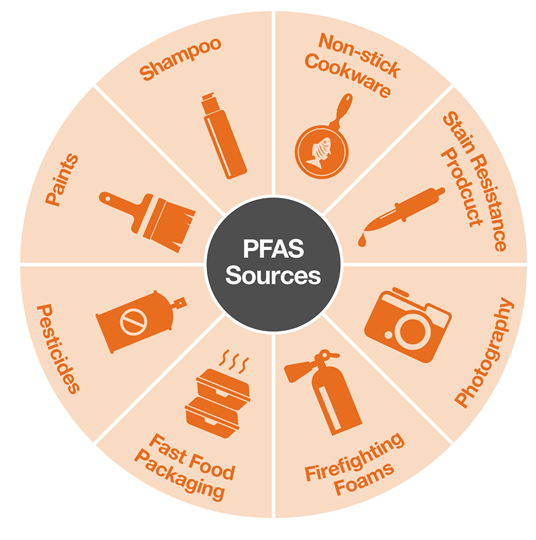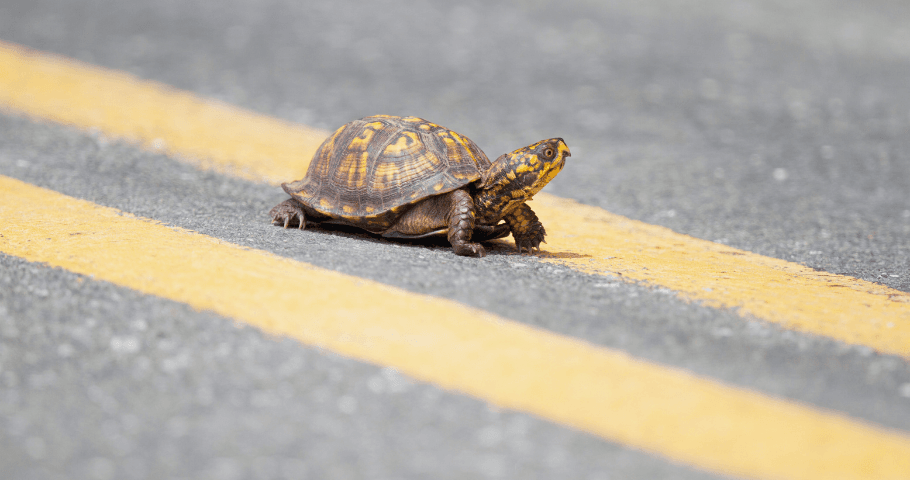November 2019
Introducing The Audubon Eagle Eye Advocacy Update! These monthly updates will provide you with simple actions you can take to help foster a cleaner, healthier planet along with local and national environmental news. Advocacy to protect birds and wildlife is a top Audubon priority and this work goes beyond testifying on their behalf on Smith Hill. Year round, we are working with our community partners and Rhode Island leaders to ensure the environment is a priority. These updates will keep you informed and ready to take action when the legislative session is upon us. As the newsletter continues, we are very interested in your suggestions and questions. Please send them to Audubon Senior Director of Policy Meg Kerr at mkerr@asri.org.
Sign up to get the Audubon Eagle Eye Advocacy Update in your inbox!
Action You Can Take This Month
-
Thanksgiving is just around the corner and this annual feast kicks off America’s holiday buying frenzy. For me, the day after Thanksgiving is a time to give to those in need. My favorite event is the Buy Nothing Day Coat Exchange.
This event was started in 1997 by local activist Greg Gerritt to push back against rampant consumerism. In 2016, Greg stepped down as the coordinator and the Providence Journal ran an article about the event and his long standing commitment and vision. Greg estimated that approximately 50,000 coats have been donated to people in need over the two decades that the program has been in place. “The need has, if anything, grown. Moms with small kids, people with limited English, people who sleep on the streets. They all come.”
The current organizers have a Facebook page and a web site where you can learn more about how to donate coats or volunteer at the exchange.
Ideas from our Readers
-
Send us your favorite strategies for protecting birds and wildlife by living more sustainably. We will include your suggestions in upcoming editions of the Audubon Eagle Eye.
Deborah Vine-Smith recently suggested we share recommendations from the book, The HONEY Companion, Natural Recipes and Remedies for Health, Beauty, and Home by Suzy Scherr. The book has recipes for a myriad of home needs including furniture polish, burn treatments and shower gel.
Email your ideas to Meg Kerr, mkerr@asri.org
-
-
In 2017, Governor Raimondo signed an Executive Order appointing a Chief Resilience Officer to drive climate resilience efforts across the state, both within government and in collaboration with business, academic, and nonprofit partners. The mission was to develop a statewide Climate Resilience Action Strategy to be submitted to the Governor by July 1, 2018. Shaun O’Rourke with the Rhode Island Infrastructure Bank was named as the Chief Resilience Officer.
Audubon and other local partners hosted community workshops to ensure broad input to the development of the Resilience Action Strategy. The final Strategy was delivered on time. Information on the process and the strategy is summarized on the state’s climate change web site.
This year, the Infrastructure Bank partnered with The Nature Conservancy to launch the Municipal Resiliency Program. Five communities (Barrington, Portsmouth, South Kingstown, Warren, and Westerly) participated in developing actionable local resiliency plans that are will be eligible for funding from the Infrastructure Bank. As the municipal resiliency program grows, the goal is to have all 39 cities and towns participate. Climate change impacts are not limited to the coast.
-
Governor Gina M. Raimondo signs the Action Plan to Stand Up to Climate Change Executive Order on September 15, 2017. Image courtesy of climatechange.ri.gov.
-
There is growing concern here in Rhode Island as well as nationally about PFAS contamination in our drinking water and environment.
What is PFAS? The acronym stands for “per- and polyfluoroalkyl substances.” They are a group of man-made chemicals that have been used in a variety of industries around the globe, including in the United States since the 1940s. There are many chemicals included under the PFAS category, PFOA and PFOS have been the most extensively produced and studied. Both of these chemicals are very persistent in the environment and in the human body – meaning they don’t break down and they can accumulate over time. There is evidence that exposure to PFAS can lead to adverse human health effects.
PFAS chemicals are widely used in commercial household products, including stain- and water-repellent fabrics, nonstick products (e.g., Teflon), polishes, waxes, paints, cleaning products, and fire-fighting foams. Food products are often wrapped in PFAS containing materials.
-
Graphic courtesy of South Carolina Rural Water Association: scrwa.org/pfas.
-
The Rhode Island Department of Health and Department of Environmental Management have monitored drinking water supplies throughout the state and are developing drinking water standards for PFAS chemicals.
Last year, bills were introduced to eliminate PFAS use in food packaging (2019, H 5565, S 218). They did not pass. We expect to see bills addressing PFAS in the upcoming session and will need your help drawing attention to this important issue.
National Issues - Electric Cars
Here is a report from Axios about the worldwide use of Electric Vehicles (EVs).
How cities will drive EV adoption
The U.S. vehicle market could finally be going electric — and faster than you might think, Axios' Joann Muller reports.
What's happening: While California and the Trump administration go to war over the state's right to set its own tailpipe emissions standards, large cities are taking steps to curb pollution and corporate giants like Amazon are launching their own green agendas.
Why it matters: EVs have been slow to catch on in the U.S., and Washington's anti-regulatory environment certainly isn't likely to change that. But in traffic-choked cities, momentum is building for cleaner urban fleets.
What we're seeing: Cities worldwide are taking steps...
- New York City is getting ready to impose the country's first congestion pricing program as a way to regulate traffic, control emissions, and raise capital for infrastructure.
- London's congestion zone restricts older pollution-spewing vehicles. Many companies have opted to upgrade their fleets rather than pay charges.
- In China, megacity Shenzhen passed a draft policy that will require all future ride-hailing vehicles be electric. U.S. and European cities could easily do the same.
- Los Angeles Mayor Eric Garcetti's version of a Green New Deal would require 80% of vehicles to be electric by 2035.
Corporate giants are getting more aggressive, too. Amazon CEO Jeff Bezos last week announced an order for 100,000 electric delivery vans from the EV startup Rivian.
The bottom line: Fleets and cities will drive EV adoption more than retail consumers and federal standards, Morgan Stanley said in a note.























